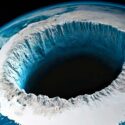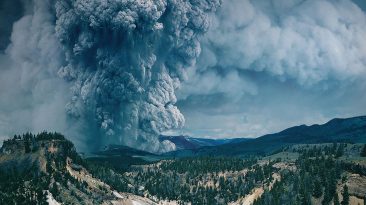Birthday balloons falling limply to the ground. Satellites, medical scanners and TVs fading to black. And twinkling stars in the night sky disappearing one by one. All in just five seconds without helium. What would the loss of helium do to your body? How would the rest of the Universe react to this molecular on-off switch? And could this bring about the end of our Solar System?
Helium isn’t only just your party balloon filler-upper. It’s the second most abundant element in the Universe. And the second lightest too, behind only hydrogen. Helium can be found on both planets and moons, but most of all stars. After all, it was discovered in 1868 by astronomers who observed a yellow light in the Sun’s corona during a solar eclipse.
That’s how it got its name from the Greek god Helios. And even though this gas isn’t something you need for your biological functions, it’s an important part of your everyday life. It’s used in the lasers of barcode readers, medical machinery like MRI scanners and scientific research equipment like CERN’s Large Hadron Collider. And it also helps prevent stars from exploding.
So would five seconds without helium lead to the biggest interstellar fireworks show of all time? The moment that helium disappears from the Universe, you’d barely notice anything right away. Our atmosphere contains almost no helium. So you’d keep on breathing without any issues. But hopefully you weren’t in the middle of an MRI scan when all this goes down.
These use a ton of energy and have superconducting magnets that need to be kept cold. Very cold. Without the -269 °C (-452 °F) chill of liquid helium running through the wires, the magnets would overheat. If you were in the machine at this moment, you could get some serious burns. Scientists working with CERN’s Large Hadron Collider would immediately run into a similar issue.
Except they’d suddenly lose 120 tons of liquid helium. And now they’d have increasingly hot magnets steering the machine’s particle beams. And, of course, the worst thing that would happen is the rapid deflation of every birthday balloon on the planet. That would make for a lot of very sad kids. Ok, maybe this wouldn’t be the worst.
None of these problems would compare to what would start happening around the rest of the Universe once all the helium disappeared. In the core of our Sun, helium is produced by the nuclear fusion of hydrogen atoms. And not just a little bit either. The Sun produces 700 million tons of helium every second.
This nuclear fusion process exerts an enormous amount of outward pressure. And without being contained somehow, this would explode. Just like a hydrogen bomb. Good thing there’s inward pressure formed by the Sun’s massive gravitational pull. This attraction of the gas mantle surrounding the core provides enough of a balance to keep things from blowing up.
If all the helium vanished though, a large amount of its mass would be gone. And with that, it would have less gravitational pull. This would upset that precious balance. So now our Sun would be on the verge of exploding. And you could count on that being bad news for you and everyone else back on Earth. But with any luck, this wouldn’t happen.
The five seconds would be up and our Sun would maintain its pressure as all of its helium is once again restored to its rightful place. Sure, MRIs and the Large Hadron Collider could be out of service for a while, but at least you could spend the rest of your life counting your lucky stars. Although make sure you keep an eye open for which stars those are.
Looking up, you could see a permanently darker night sky. Some stars didn’t fare as well as our own. And as their light travels you could see evidence of their explosions for many years to come. You would also be fortunate that it was helium that disappeared from the Universe for five seconds. At least it wasn’t something a bit more essential to you. Like oxygen.
Sources
- “Helium Shortage! What If We Ran Out Of Helium?”. 2015. science.howstuffworks.com.
- “The Sun and Nuclear Fusion”. 2022. wwu.edu.
- “How Is Helium Gas Obtained?”. 2019. peakscientific.com.
- “Natural Gas”. 2022. education.nationalgeographic.org.
- “LHC Filling With Liquid Helium At 4 Kelvin”. Cian O’Luanaigh. 2014. home.cern.


























